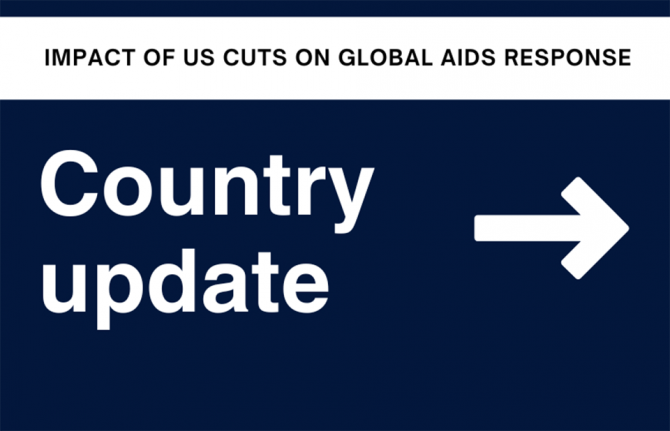

Feature Story
Impact of US funding cuts on HIV programmes in Burundi
02 April 2025
02 April 2025 02 April 2025Immediate Risks and Disruptions
- Funding Gap: An immediate input gap of 6,436,448 USD has been identified; these funds are required to cover the purchase of antiretroviral therapy (ARVs), tuberculosis (TB) prevention products, essential drugs for opportunistic infections (OIs), rapid tests, and transport costs.
- Service Disruptions: The US funding cuts have disrupted services provided by ICAP, a major implementing partner financed by the US, and its two main civil society organization sub-recipients, affecting approximately 10,290 people living with HIV (PLHIV), including 528 pregnant/breastfeeding women, and 5,512 people most at risk of exposure to HIV.
- Impact on Key Services: An evaluation carried out by the stakeholders estimated the impact of the US funding cuts as follows: Services impacted by more than 25% include: pre-exposure prophylaxis (PrEP), distribution of condoms and lubricants, health promotion and prevention services, services for key vulnerable populations (KVPs), prevention and management of sexual and gender-based violence (SGBV), community-led monitoring (CLM), and data management and health information systems.
Politically Relevant Updates
- Suspension of US Government Funding: the 90-freeze of US foreign assistance has put on hold at least 6,872,000 USD, representing support for more than 50% of the HIV activities needed to ensure continuity of service for people living with HIV.
- Impact on Data Management: The cuts have compromised data production and management, with over 711,500 USD needed to support the management of electronic medical record systems and the strengthening of the national health information system.
- Civil Society Impact: Community organizations involved into Community Led Monitoring (CLM) are heavily impacted, with three implementing partners (CAPES+, BUNERELA, CBF+) reporting a funding impact of 230,574 USD on their operating budget and on their human resources. Additionally, more than 167 staff from service provider organizations have had their contracts affected, and 30 peer educators working with 200 infected injecting drug users have had their contracts terminated.
The US funding cuts have had a profound impact on HIV programmes in Burundi. For example, ICAP, an implementing partner financed by the US, provided comprehensive coverage of prevention, treatment, and care as well as HIV viral load monitoring to around 61,000 PLHIV (out of an estimate of 81 000 PLHIV in the country) through the Baho Mbeho project in 349 health facilities across 18 provinces. The disruption of these services has left thousands of individuals without essential support, highlighting the critical need for sustained funding and international cooperation to ensure the continuity of HIV programmes.
Recommendations and mitigation measures resulting from consultations and an impact workshop include:
- Organize a joint field impact assessment mission under the lead of the Ministry of Health (MOH).
- Set up a crisis management group and a mitigation plan.
- Map US-funded interventions/projects.
- Set up a team to leverage the UNAIDS Rapid AIDS Financing Tool (RAFT).
- Model impact according to various scenarios and reprogram/reprioritize interventions.
- Meet with development partners to discuss funding and support.
- Include HIV in primary health care, universal health coverage (UHC), and social protection.
These measures aim to address the immediate risks and disruptions, ensuring that HIV programmes can continue to provide vital services to those in need.


